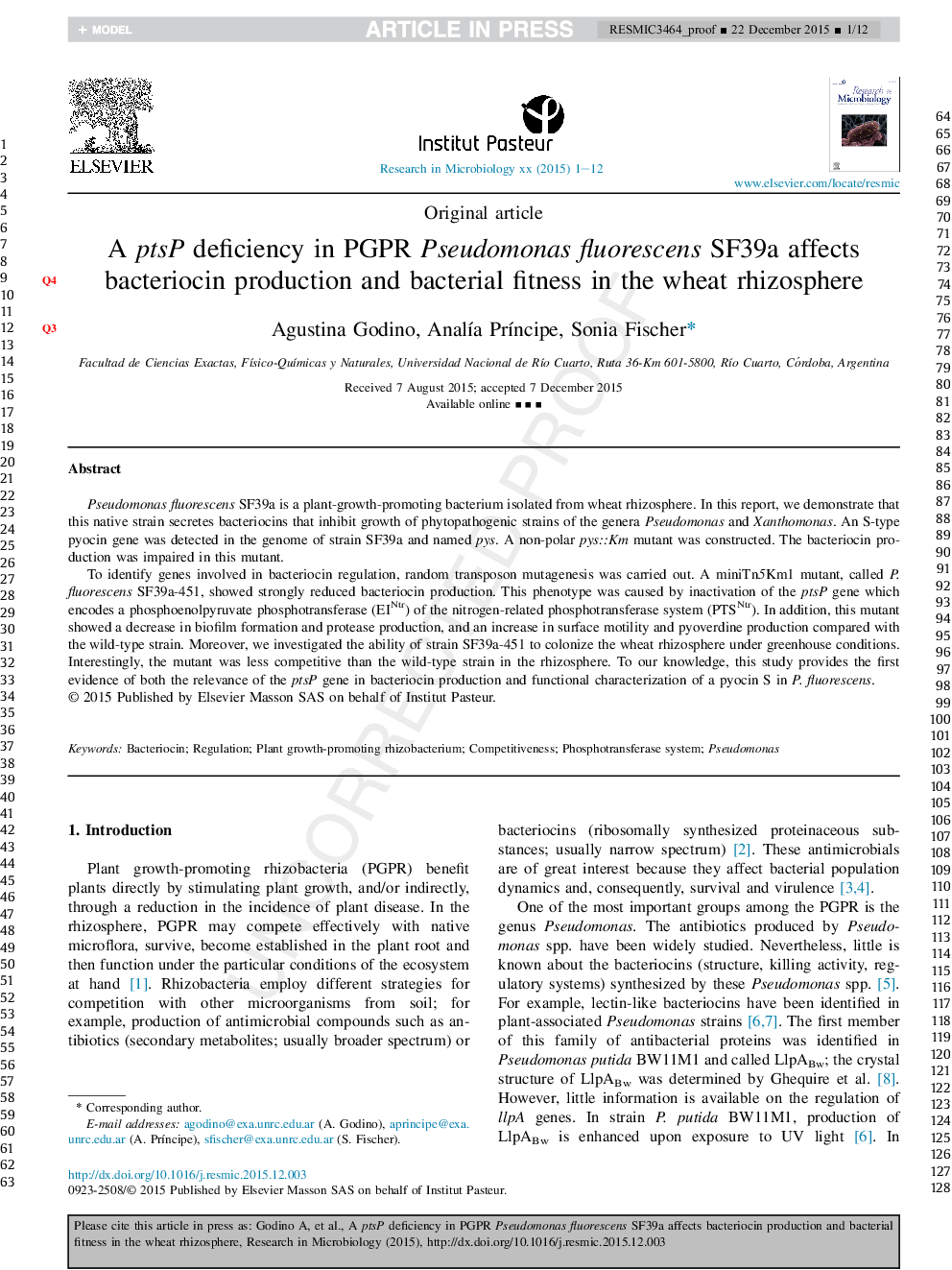| Article ID | Journal | Published Year | Pages | File Type |
|---|---|---|---|---|
| 6288046 | Research in Microbiology | 2016 | 12 Pages |
Abstract
To identify genes involved in bacteriocin regulation, random transposon mutagenesis was carried out. A miniTn5Km1 mutant, called P. fluorescens SF39a-451, showed strongly reduced bacteriocin production. This phenotype was caused by inactivation of the ptsP gene which encodes a phosphoenolpyruvate phosphotransferase (EINtr) of the nitrogen-related phosphotransferase system (PTSNtr). In addition, this mutant showed a decrease in biofilm formation and protease production, and an increase in surface motility and pyoverdine production compared with the wild-type strain. Moreover, we investigated the ability of strain SF39a-451 to colonize the wheat rhizosphere under greenhouse conditions. Interestingly, the mutant was less competitive than the wild-type strain in the rhizosphere. To our knowledge, this study provides the first evidence of both the relevance of the ptsP gene in bacteriocin production and functional characterization of a pyocin S in P. fluorescens.
Keywords
Related Topics
Life Sciences
Immunology and Microbiology
Applied Microbiology and Biotechnology
Authors
Agustina Godino, AnalÃa PrÃncipe, Sonia Fischer,
